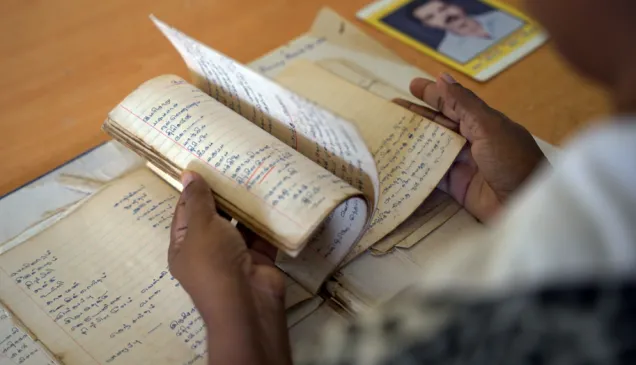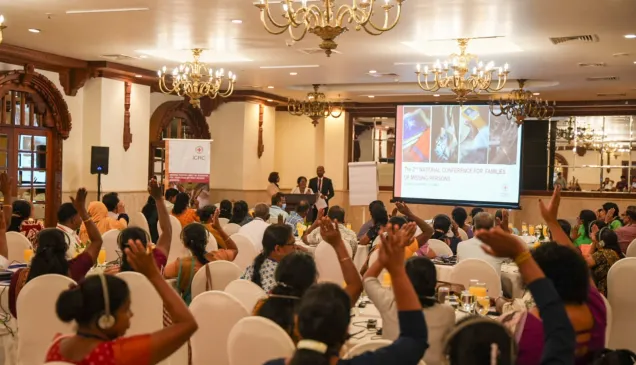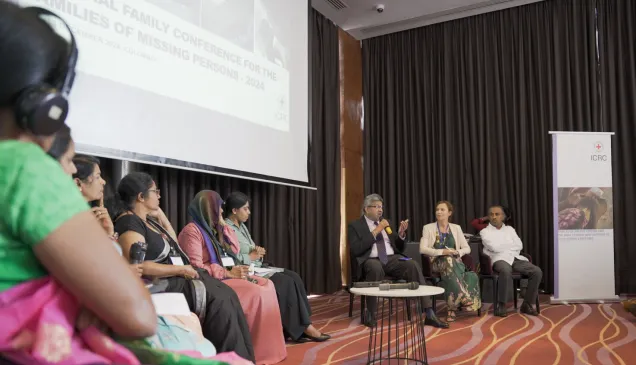Sri Lanka: Operational update, January – August 2015
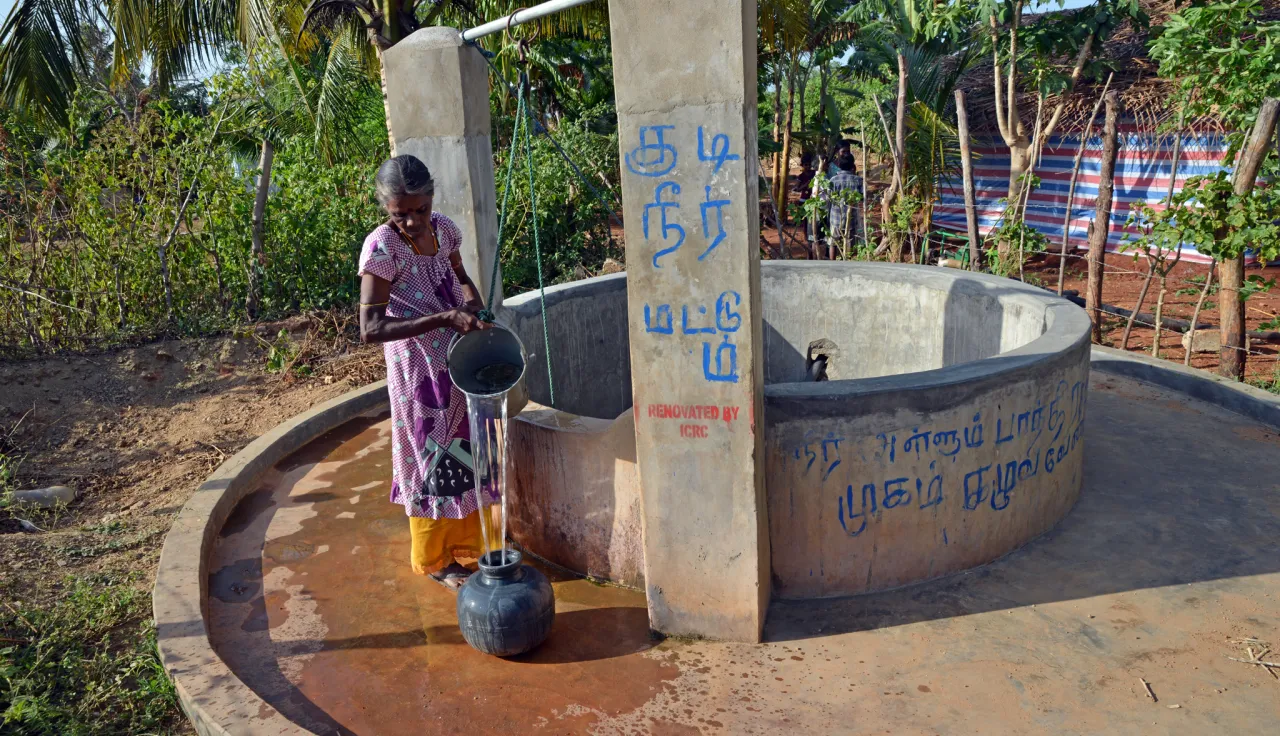
The ICRC's work in Sri Lanka focuses on supporting people still suffering the effects of the conflict between the Liberation Tigers of Tamil Eelam and the Sri Lankan government. We are visiting detainees, supporting the families of missing persons, training forensics personnel, supporting vulnerable people, ensuring safe water and sanitation and promoting international humanitarian law.
Visiting detainees
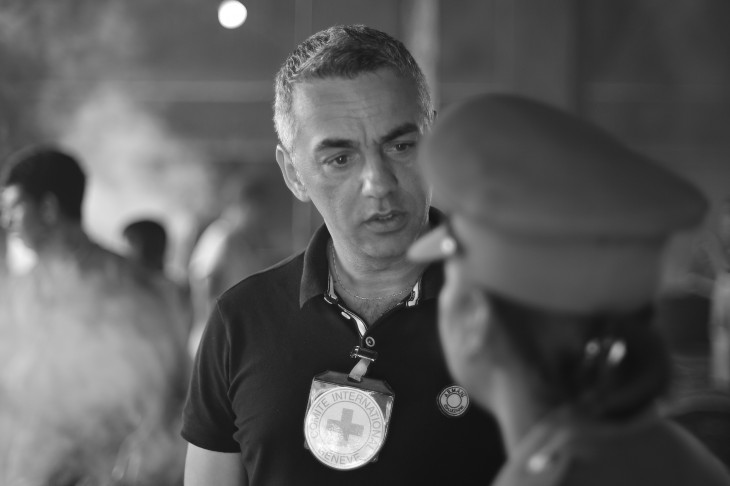
The ICRC visits detention centres in Sri Lanka to help authorities ensure adequate conditions of detention and treatment for all detainees, in keeping with international standards and domestic laws. Following these visits, we share any findings and recommendations with the authorities on a confidential basis.
Between January and August, ICRC staff:
- visited more than 12,000 detainees in 28 places of detention, including police stations, prisons, rehabilitation centres and migrant transit centres;
- helped government stakeholders in the judicial and prison system to establish a National Task Force to address the legal and judicial causes, and the consequences of overcrowding in prisons;
- provided all detainees in temporary and permanent places of detention with toiletries, clothes and recreational items;
- gave 44 detainees an allowance to return home following their release;
- collected 32 and distributed 52 Red Cross messages between detainees and their families, and facilitated the exchange of news for 10 foreign detainees whose families are overseas;
- gave over 300 families an allowance to visit their detained relatives;
- provided medical equipment to four prison hospitals;
- conducted a comprehensive health needs assessment of prison health services in five prisons, a prison hospital, a drug rehabilitation centre for prisoners, and three referral hospitals;
- improved the living conditions of nearly 3,900 detainees through the renovation and / or construction of wards, and sanitation and water systems in three prisons.
Supporting the families of missing people
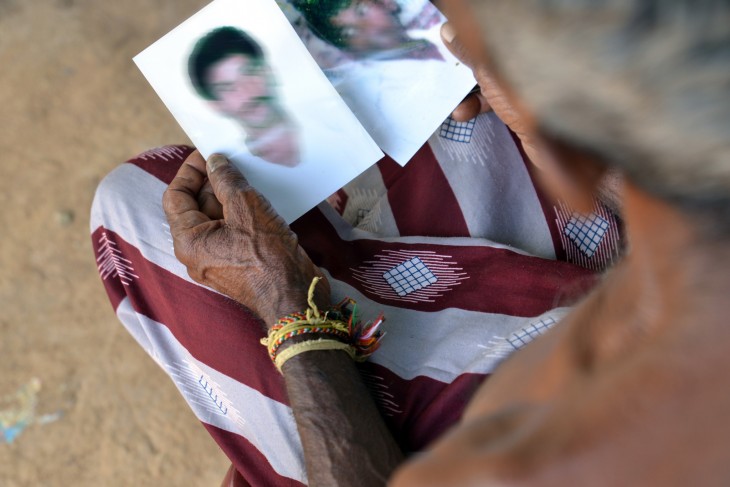
The ICRC is helping the families of missing persons by working with the authorities and others to clarify the fate of missing persons and the needs of their families.
Between January and August, the ICRC:
- carried out 395 individual interviews with families of missing persons and held focus group discussions with these families to better understand their needs;
- contacted 156 families regarding the upcoming launch of a new programme to address the needs (psycho-social, legal, administrative, and socio-economic) of families of missing persons in the Anuradhapura, Mannar and Trincomalee districts;
- contacted 35 families to follow up on 55 tracing requests relating to medical evacuations carried out by the ICRC in 2009;
- issued 129 travel documents enabling refugees to resettle in another country under the auspices of the UNHCR.
Supporting the judicial medical institutions and authorities
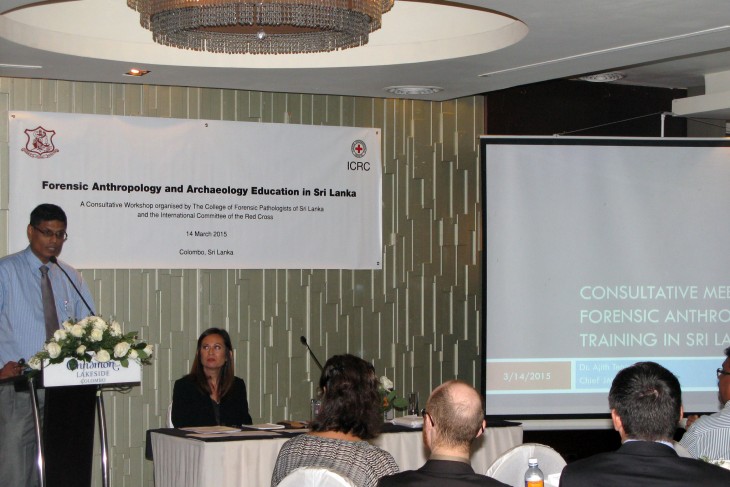
The ICRC helps medical-legal, judicial and other authorities to ensure that the bodies of people who die during armed conflict, disasters or migration are handled with dignity and are professionally managed. We also provide guidance to local forensic, legal and administrative institutions on issues related to the living, such as medical-legal evaluation of injuries and determination of age for administrative purposes.
Between January and August, the ICRC:
- provided support to the judicial medical community, enhancing the forensic skills they require in order to search for, recover, analyse and identify skeletal remains, including those from mass graves, through the development of an MSc in Forensic Anthropology and Archaeology at the University of Colombo;
- helped the judicial medical community and other bodies, including the Ministry of Justice, to develop and refine policy, draft and finalize guidelines on the management of the dead after disasters and draw up standard operating procedures on the management of mass graves;
- contributed to the committee established by the Minister of Justice to propose amendments to the laws, procedures and practices relating to the conduct of inquests into deaths;
- began working on medical-legal issues in places of detention.
Assisting vulnerable households and communities
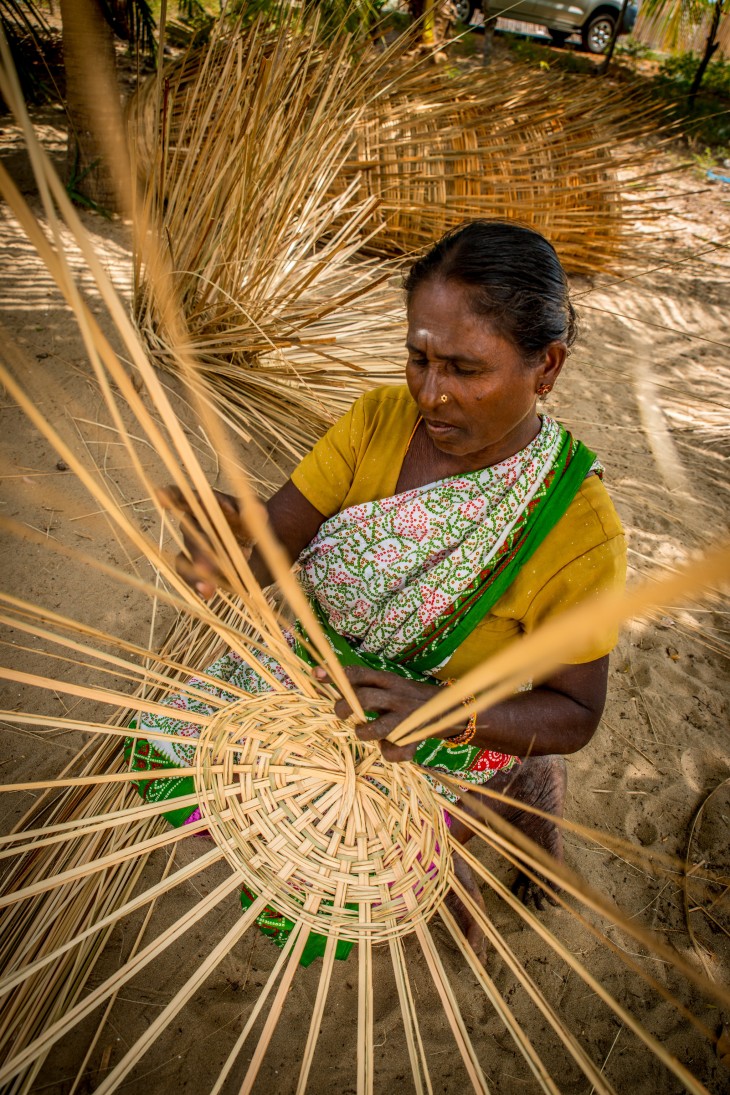
In the north and east of Sri Lanka, the ICRC helps women-headed households, people disabled as a result of past conflict, released rehabilitees (ex-Liberation Tigers of Tamil Eelam), economically vulnerable households, and families of missing people to start or consolidate a livelihood activity through our Micro Economic Initiatives (MEI) programme. By engaging in activities such as crop cultivation, fishing, livestock farming, and trade and craft, these people are able to generate a sustainable income for themselves and their families.
Additionally, we work towards improving the livelihoods of vulnerable communities in the Northern Province through our community-based livelihood support programme, designed to meet local needs.
Between January and August, the ICRC:
- assisted 478 households through our MEI programme;
- assessed seven vulnerable communities for livelihood assistance;
- developed five community project proposals based on the needs identified with relevant government authorities.
Ensuring safe water and sanitation
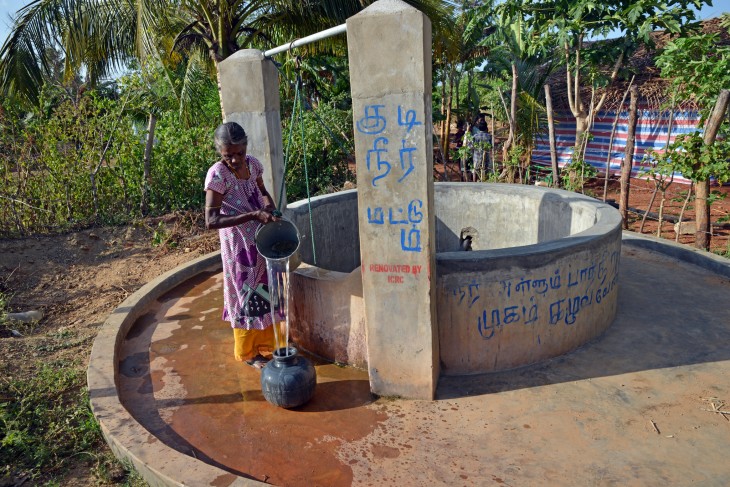
In the Northern Province, communities will benefit from the building/renovation of water systems and sanitation facilities.
Between April and August, the ICRC engaged in the following activities (currently in the implementation phase):
- 10,500 school children will benefit from the construction of 20 blocks of sanitation facilities, 10 water systems and two buildings each containing three classrooms, in 25 schools in Kilinochchi, Mullaitivu, Mannar and Vavuniya;
- 1,700 school children and 5,300 individuals in over 60 communities will have access to safe water after the renovation and construction of 67 open dug wells and the repair of 27 hand pumps in Kilinochchi, Mullaitivu, Mannar and Vavuniya.
Promoting international humanitarian law (IHL)
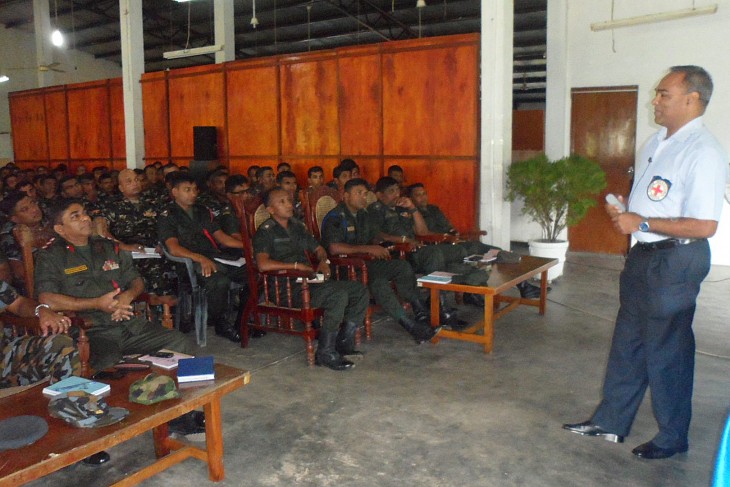
The ICRC promotes IHL by encouraging and helping national authorities and Sri Lankan armed forces and academia to integrate the principles of IHL into their courses and curricula. We also sponsor participation in seminars, workshops and conferences overseas where people can enhance their understanding of IHL.
Between January and August, the ICRC:
- conducted briefings on IHL and military in law enforcement for more than 1,000 army, navy and air force personnel, including 79 military medical personnel to be deployed to Bor, South Sudan;
- conducted an IHL briefing for 106 air force personnel to be deployed to the Central African Republic on UN peacekeeping operations;
- provided training on international human rights law for the Terrorist Investigation Division, Criminal Investigation Department and the Narcotics Bureau of the Sri Lanka Police on correct use of force and firearms, and international standards in search and arrest procedures;
- organized the 6th South Asian Conference on international humanitarian law in Colombo, in cooperation with the Sri Lanka Ministry of Foreign Affairs (over 60 participants and experts in IHL from the region attended);
- organized the annual IHL moot court competition for undergraduate law students;
- supported the translations of the Geneva Conventions into local languages in close collaboration with the National IHL Committee;
- helped the National IHL Committee enhance its capacity to promote compliance with IHL.
Working with the Sri Lanka Red Cross Society
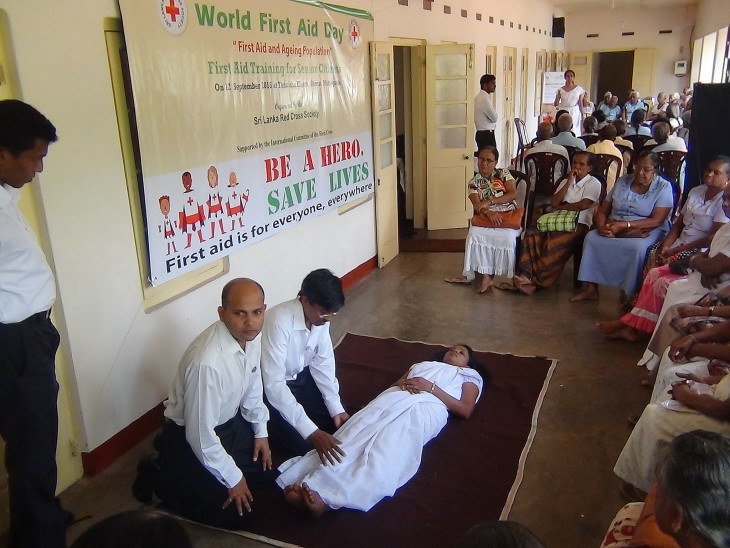
As part of an ongoing effort to enhance the capacity of the Sri Lanka Red Cross Society (SLRCS), the ICRC provides financial, technical and material support to maintain the SLRCS' restoring family links services, which help reconnect families separated due to conflict or natural disasters. The ICRC also helps the SLRCS develop its emergency response capacity in the field of first aid, and provide livelihood support for vulnerable families in the Northern Province.
Between January and August, the ICRC helped the SLRCS to:
- develop first aid skills in over 400 volunteers by facilitating their attendance at an all-island basic first-aid exam;
- provide first-aid services at 18 national / district level events (including for pilgrims visiting places of worship and during the Pope's visit);
- construct a divisional building for the Mullaitivu SLRCS branch, increasing its capacity to host income-generating activities in the future;
- celebrate World Red Cross and Red Crescent Day together, creating awareness of the Movement's Fundamental Principles and holding SLRCS branch-level activities such as blood donations, art competitions for children and the donation of glasses at a home for the elderly;
- hold seven workshops, including training for volunteers to disseminate the Movement's Fundamental Principles and awareness sessions on the Red Cross for the general public, government authorities and in schools.
To expand our work at a local level, we once again opened an office in Vavuniya in August this year, having operated since 2011 from the SLRCS branch office in Vavuniya.

